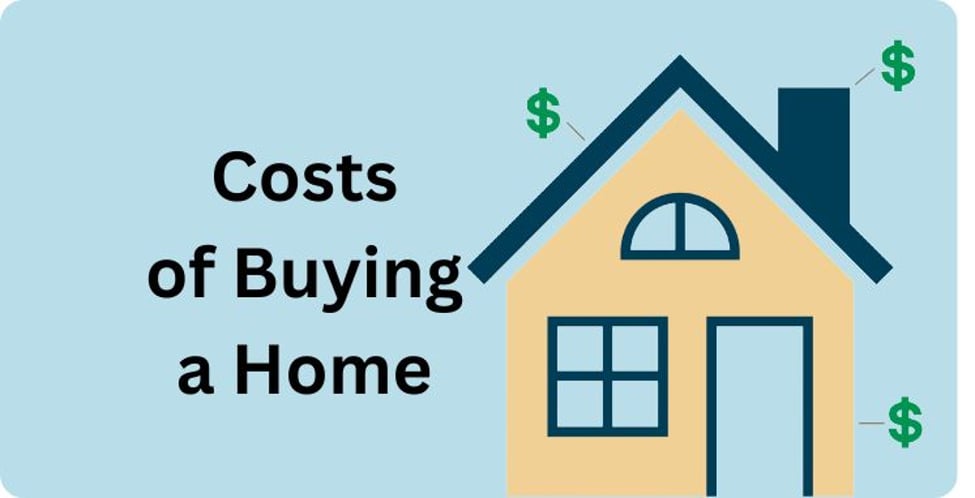Among the various expenses, the land transfer tax is a major consideration for sellers and buyers in Ontario, including the Waterloo Region. This blog will break down what the land transfer tax is, how it’s calculated, and other key costs associated with selling your home.
Here is a Buyers Calculator to help you! Buyers Calculator
What is Land Transfer Tax?
The land transfer tax (LTT) is a tax levied by the Ontario government when a property changes ownership. While sellers don’t directly pay the LTT, buyers need to account for it, which may influence their offer price or negotiating position. Understanding the LTT can help you better navigate offers and closing costs.
In Ontario, the LTT is calculated based on the property’s purchase price, using the following marginal tax rates:
0.5% on the first $55,000 of the purchase price
1.0% on the portion between $55,000 and $250,000
1.5% on the portion between $250,000 and $400,000
2.0% on the portion above $400,000
2.5% on any portion above $2,000,000 (for single-family residences)
Example Calculation: For a property sold at $600,000 in Waterloo:
0.5% on the first $55,000: $275
1.0% on the next $195,000 ($250,000 - $55,000): $1,950
1.5% on the next $150,000 ($400,000 - $250,000): $2,250
2.0% on the remaining $200,000 ($600,000 - $400,000): $4,000
Total Land Transfer Tax: $8,475
Buyers should also be aware of the First-Time Home Buyer Rebate, which provides up to $4,000 in relief for eligible buyers.
Legal Fees
Expect to pay $1,500 to $2,500 for a real estate lawyer to handle paperwork, title transfers, and closing requirements.
What is a Deposit When Buying a Home?
A deposit is an upfront payment made by a homebuyer as a sign of good faith and commitment to the purchase of a property. It is a critical part of the home-buying process and is typically submitted after the buyer’s offer has been accepted. Here's an explanation of what a deposit is, how it works, and what buyers should consider.
Key Features of a Deposit
Amount of the Deposit
- The deposit amount varies depending on local market practices, the property's price, and seller expectations. In many parts of Canada, including Waterloo, deposits often range between 2% to 5% of the purchase price, but this can be negotiated.
- For example: If you’re buying a home for $600,000, a deposit of $12,000 to $30,000 might be expected.
When is the Deposit Paid?
- The deposit is typically paid shortly after your offer is accepted. In Ontario, the buyer usually submits the deposit within 24 hours of the seller accepting the offer, unless another timeline is specified in the agreement.
Where Does the Deposit Go?
- The deposit is held in trust, often by the listing brokerage, until the transaction closes. This ensures the funds are secure and used appropriately.
Role of the Deposit
- It shows the seller you are serious about purchasing the property.
- It provides the seller with financial security in case the buyer backs out of the agreement without valid reason (subject to contract terms).
What Happens to the Deposit?
If the Sale Closes Successfully
- The deposit is applied toward the purchase price of the home. For instance, if the purchase price is $600,000 and you’ve already paid a $20,000 deposit, you would need to pay the remaining $580,000 at closing.
If the Sale Falls Through
- With a Valid Reason (e.g., Financing or Inspection Contingencies): If the sale doesn’t proceed due to conditions included in the offer (like failing a home inspection or not securing financing), the deposit is typically returned to the buyer.
- Without a Valid Reason: If the buyer backs out of the deal without meeting any contingencies, the seller may be entitled to keep the deposit as compensation for their time and potential losses.
Tips for Buyers Regarding Deposits
Be Prepared
- Ensure you have the deposit amount readily available in your bank account before making an offer. The funds need to be accessible quickly, often via a certified cheque or bank draft.
Understand the Terms
- Carefully review the terms in your purchase agreement, especially regarding contingencies and deposit return policies.
Work with Professionals
- Your real estate agent and lawyer can guide you through the process and help ensure your deposit is handled properly.
Trust the Process
- Deposits are standard practice in real estate transactions, and they offer security for both parties. Be confident that your funds will be managed appropriately in the trust account.
Why is a Down Payment Required?
The down payment serves as a financial commitment, showing the lender that the buyer is serious about the purchase. It also reduces the lender’s risk by ensuring the buyer has equity in the property from the start.
Key Benefits of a Larger Down Payment
Lower Monthly Mortgage Payments:
- The more you put down, the less you borrow, resulting in smaller monthly payments.
Avoid Mortgage Default Insurance:
- In Canada, if your down payment is less than 20%, you must pay for mortgage default insurance (CMHC insurance). A larger down payment can help you avoid this added cost.
Reduced Interest Costs:
- A lower loan amount reduces the total interest paid over the life of the mortgage.
Increased Home Equity:
- Starting with more equity in your home provides financial flexibility in the future.
A down payment is one of the most significant financial steps in purchasing a home. It requires careful planning and budgeting, but it sets the foundation for securing your dream property and achieving long-term financial stability. If you’d like help understanding down payment requirements or exploring home options, feel free to reach out!
Here is a Buyers Calculator to help you! Buyers Calculator
